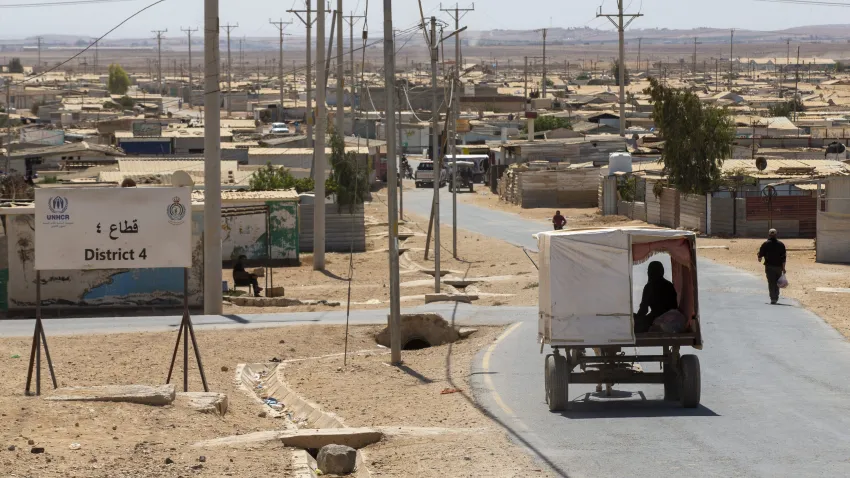
Uncertainty is rising for Syrian refugees everywhere. Borders are tightening in Europe, deportations from Lebanon and Turkey are increasing, and Syria remains inhospitable for returning refugees. Jordan is considered to be a Syrian refugee “success story” due to its record of hospitality. However, Syrians who reside in the country are increasingly concerned about changes in the government’s posture toward them. They fear that their host government may be running out of patience and they may soon be pressured to leave.
Pressure is mounting as international funding dwindles. Syrian refugees in Jordan, 670,000 of whom are registered with UNHCR, recently had their monthly food support reduced from 23 to 15 Jordanian dinars, making it more difficult for Syrians in the Zaatari and Azraq camps to access food, health and other basic services. As of July, only 32 percent of UNHCR’s Jordan response was funded, leaving a gap of $264 million. The number of refugee households unable to pay their rent rose by 66 percent from December 2022 to February 2023. These cuts are likely to make it even more difficult for Syrian refugees to access jobs, in a country where youth unemployment stands at almost 50 percent.
Jordan is “way above our capacity,” Jordan Foreign Minister Ayman Safadi said in June at the seventh conference on the future of Syria in Brussels. “We ring the alarm.” International financial support for the Jordan response plan to the Syria crisis has been decreasing over the past five years. In 2022, only 33.4 percent of the plan was funded. As of July, financial support for the plan was just 7.5 percent of the amount required for the first half of 2023. Jordan’s Ministry of Planning has announced that a new approach will be adopted in 2024. This will likely be based on new calculations that take into account the emerging regional consensus.
